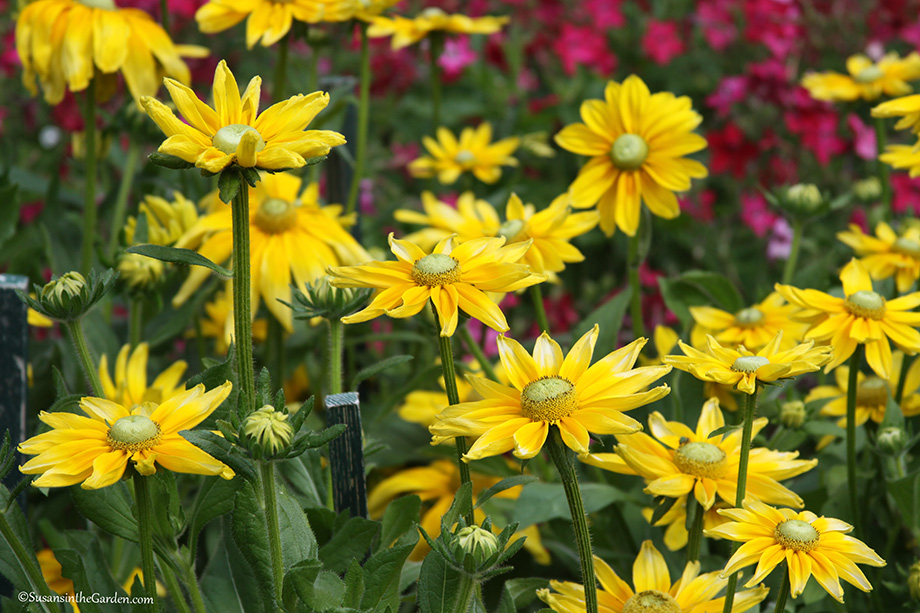Column: Silly Garden Survey

After reading the headline on this post, you’re probably wondering what in the world I’m talking about. My editor recently brought a garden survey to my attention and asked if I’d like to address it in my column.
Once I read it, I knew I wanted to! I suppose that, more than anything, the folks who conducted the survey just wanted publicity. Well, I’m giving them some but primarily because the conclusions they draw from it are ridiculous.
Have a look and let me know if you agree (just drop me an email at Susan@SusansintheGarden.com).
by Susan Mulvihill
Surveys are usually conducted to gain insight into a segment of the population and to draw logical conclusions based on the data that was collected. You’ll find surveys on every topic imaginable, with some being thought-provoking while others are quite silly and uninformed.
A survey that falls into the latter category came across my desk recently. I’m a pretty easygoing gal but this one really irritated me. You’ll likely feel the same once you hear the conclusions that were drawn from it.
Codey Stout of treetriage.com reports that they conducted a survey of 1,000 American gardeners because they wanted to know more about their gardening habits.
“Some Americans feel like they’re cursed when it comes to keeping plants alive. In fact, nearly 1 in 6 (14 percent) feel they kill every plant they try to grow,” he shares. “We determined the cities where people are most likely to kill plants based on the ones searching the most about plant problems. Spokane tops the list.”
Yes, you read that right. Stout goes on to explain this can probably be attributed to “Washington’s rainy weather, so they have to make sure they don’t overwater their plants when Mother Nature is at work!”
Apparently, they didn’t feel the need to do any further research, which might have led them to discover that Spokane is on the dry side of Washington state. Seattle receives an average of 37 inches of rain annually while Spokane only gets about 17 inches. The website visitspokane.com states that the amount we receive “is far below the national rain average of 38 inches per year.”
If you’re curious, the top five cities that made their “Cities Most Likely to Kill Plants” list are Spokane; Richmond, Virginia; Baton Rouge, Louisiana; Boise; and Chesapeake, Virginia.
I have written these garden columns for nearly 20 years and over that time, I have had the pleasure of visiting with local gardeners and experiencing their beautiful, thriving gardens. Our city is home to the Spokane County Master Gardener program, highly-attended garden classes, huge events such as Garden Expo, garden tours and more.
I can say with confidence that when gardeners conduct web searches, they are wanting to improve their skills. It’s also a fact that every successful gardener has killed plants along the way and learned from their experiences.
My fellow garden columnist Pat Munts agrees that the report used bad data.
“We aren’t killing plants,” she said. “We are experimenting or teaching people how to grow plants. We are dealing with climate change. Our winters are long and cold and that means we buy more plants to bring color back into our lives. Not to mention the fact that the deer and moose eat everything.”
After reading through this study, Washington State University Extension program coordinator Tim Kohlhauff had this to say:
“Good gardeners want to get better so they are more likely to search for information about their plants. Whether it’s about good techniques or what went wrong, I think our placement on this list tells us that local gardeners want to know more. This survey and article put a negative spin on something that’s actually a positive. It tells us that if we do have failures, we want to learn from them and do better. Way to go, Spokane gardeners!”
In retrospect, perhaps I skewed the data by doing so many searches for gardeners across the United States and Canada who were looking for answers to problems that arose. Sorry about that, Spokane.
Susan Mulvihill is author of “The Vegetable Garden Problem Solver Handbook” and “The Vegetable Garden Pest Handbook.” She can be reached at Susan@SusansintheGarden.com. Watch this week’s video at youtube.com/susansinthegarden.

